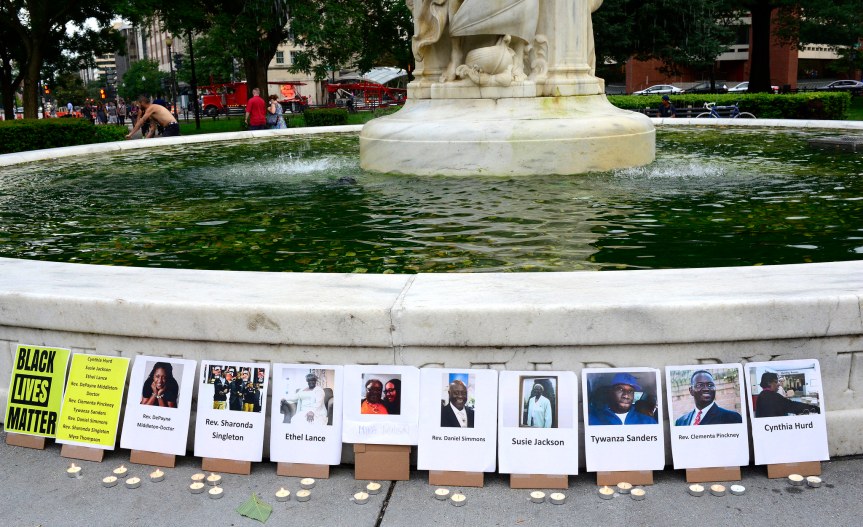On Wednesday, June 17, 2015, Dylan Storm Roof walked into Emmanuel African Methodist Episcopal Church in Charleston, South Carolina. For almost an hour, he participated in Bible study and prayer with twelve other people. And then he stood up, pulled a .45-caliber handgun from his fanny pack, and shot ten people, killing nine of them.
As his victims begged for their lives and asked, “Why are you doing this?” he responded, “I have to do it. You rape our women and you’re taking over our country. And you have to go.” And then, when he had finished murdering nine African Americans out of hate, he turned the gun on himself, found he had no more bullets, and walked out.
Dylan Roof believed in the values upon which the countries of Rhodesia and apartheid-era South Africa were built—that white people were in every way superior to black people. He represented himself with the battle flag of the Army of Northern Virginia, the battle symbol used by armies that explicitly fought to defend the right of certain states to continue enslaving African natives.
He was also a member of an ELCA congregation; he professed to be a member of our church. Two of his victims were graduates of Lutheran Southern Theological Seminary, an ELCA seminary.
Dylan Roof did not come up with these ideas on his own. He was taught who to hate and how to do it. He didn’t hide his feelings—he didn’t have to. Friends of Dylan have come forward and said he was planning his massacre for over six months, but no one thought he was serious. Not enough people spoke out. His racist ramblings were simply accepted. His display of overtly racist symbols was considered normal enough to not raise too many concerns.
When hate and racism are considered “normal”, and their symbols are a source of pride instead of disgust; when we fail to confront the evil in our midst, either because we can’t see it or we won’t; when we as a church, as congregations called to practice the radical love of Christ and to speak out against injustice and hate are too timid to live into that calling; we have a problem.
We have a problem. And the problem is us.
Featured Image: “DC Vigil for Charleston Murders 26” by Stephen Melkisethian is licensed under CC BY-NC-ND 2.0.
This article was originally written for Faith Lutheran Church’s July newsletter, “Faith’s Foundations”.


Reblogged this on Genesis of Tomorrow.
LikeLike